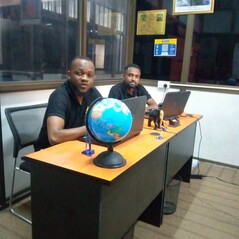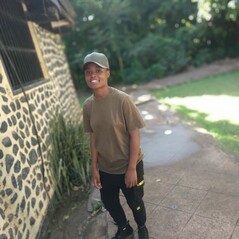Day 1: From Dar es Salaam to Moshi
- We gather in Dar es Salaam, from where we move to Moshi, from there it takes 2 hours by car to get to the gates of Machame.
- We will approach the mountain from the south side; go along the trail to the Shira Plateau through the rainforest. From this place many popular routes begin.
Day 2: From Machame Gate to Machame Camp
- We will tell you all about the ascent, and then head to the entrance of the Kilimanjaro National Park. There you will receive permission to enter the park and register for the rescue service.
- Then finally begin the ascent to the Machame Camp, which stands at an altitude of 3010 m. We will cross the rainforest and other amazing places.
Day 3: From Machame Camp to Shira Camp
- On this day, our main goal is the Shira Camp at an altitude of 3750 m. In the course of the ascent, there will be elevation changes, so the success of the ascent largely depends on the choice of a suitable trekking pace.
- When our group arrives at the camp, you can rest and have lunch.
Day 4: From Shira Camp to Lava Tower and Barranco Camp
- We start with a hearty breakfast and then leave the camp. Our main goal for this day is the Lava Tower! Get ready for multiple ups and downs to reach the high mountain camp.
- During the ascent, you may feel some discomfort, which occurs due to acclimatization and disappears after 1-2 hours. On the way, have lunch.
- The next goal is the descent to the Barranco Camp at an altitude of 3960 m. There, our eyes will see the beautiful Barranco Wall, which surprises with its size and monumentality! We have to conquer this sight the next day, but the path to it will be easier than it might seem at first glance.
Day 5: From Barranco Camp to Karanga Camp
- On the 5th day, we get up earlier than usual to start climbing, in order to avoid the cluster of other groups that usually climb at a later time. We will take a break to take pictures against the backdrop of the Mount Kibo.
- The next part of the journey will be significantly more difficult: we will have to reach the Karanga Camp at an altitude of 4035 m. We will give you all the necessary instructions to cope with the ascent.
- Upon arrival at the camp, we will have lunch and move on to the Barafu Camp, which stands at an altitude of 4640 m. We strongly advise you to save your strength, because then we will have a night ascent to Uhuru Peak.
Day 6: From Karanga Camp to Barafu Camp
- On this day, we must reach the Barafu. We will see many wonderful views. Then stop, rest and set up at the the camp.
- After an early dinner, we begin preparations for the night climb; from here we are going to have a view of Kibo Peak.
Day 7: From Barafu Camp to Uhuru Peak and Mweka Camp
- Already at midnight we begin the final stage of the ascent to the summit.
- This part of the journey will be the hardest. The cold here is especially strong, temperature drops are a serious test, and we will climb for several hours with small stops. On the other hand, we will be delighted to see one of the most beautiful and spectacular sunrise.
- And, finally, on the 7th day of the difficult journey, we conquered the peak – you arrived at Uhuru Peak, the highest point of Mount Kilimanjaro!
- We will spend night at the Mweka camp. Late in the evening we have a hearty dinner and enjoy a well-deserved rest on the mountain.
Day 8: Final day
- On the last day, we are going to pass through the slopes covered with tropical forest and return to the starting point. There you will be given certificates.
- Included: transfer, guide, meals (ask me for details), hot water for washing, drinking water, camping fees (If you have any questions about the type of accommodation in the camps please contact us), park entry fees, government taxes, portable oxygen tanks, ox meter, emergency first-aid kit, stethoscope, portable flush toilet with a toilet and tent, mountain climbing certificates.
- Insurance is excluded.
- The tour is suitable for climbers and mountaineers with good physical training. If you have some health problems, it is better to consult us first.
- Ask us on what you should bring with you. It is important to choose the right equipment.
- If you are a member of the East African Community, then the cost will be $900 per person.
Meet Movimento - Guide in Dar es Salaam

Hello, I'm Movimento, a local guide from Dar es Salaam
I live in Dar es Salaam
I speak: English
Your reliable tour guides from Tanzania!
I will be happy to meet with you and conduct any of my Experiences.

















